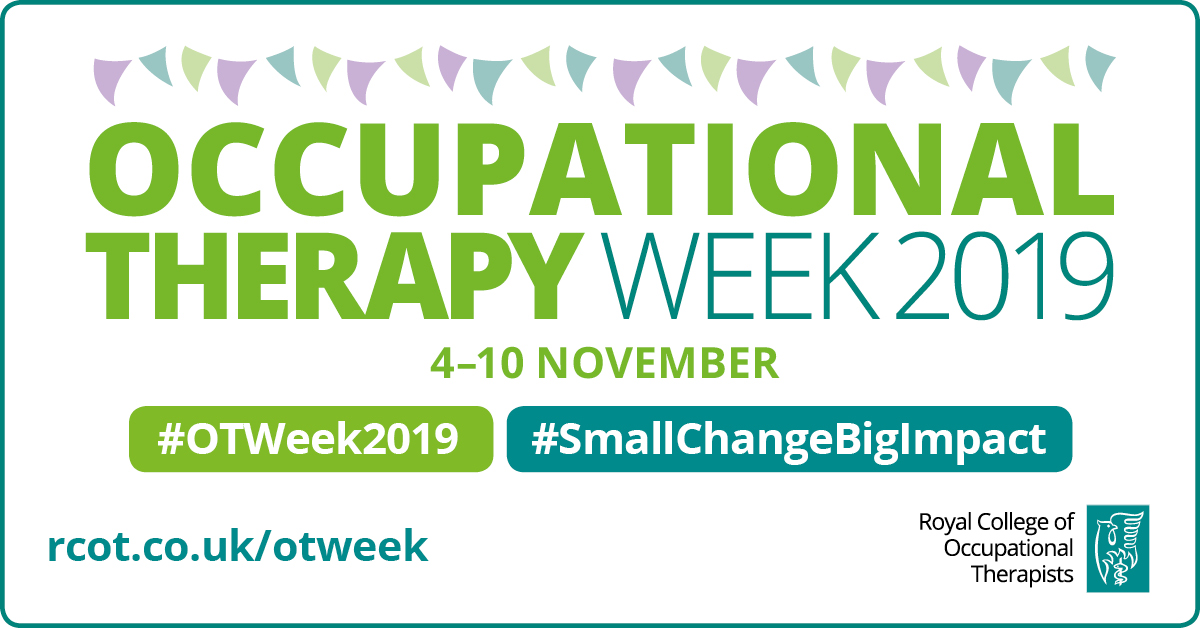OCCUPATIONAL THERAPY WEEK 2019
#SmallChangeBigImpact

Over the past year the Occupational Therapy service has, thanks to funding from Lloyds Patriotic Fund, implemented sensory modulation as part of our treatment offered to veterans. Sensory modulation is ‘changing how you feel through using your senses’. It directly effects the fight or flight system to quickly change stress and arousal levels. Because the body and emotions (rather than our thinking) are used to change how we feel, sensory modulation is sometimes referred to as a type of bottom up processing. Depending on the type of sensory input and our own unique sensory systems, sensory modulation can increase feelings of calm, energy, improve focus and enhance feelings of safety and connection. Through sensory modulation, a Small Change can have a Big Impact – for example:
• Using a weighted blanket can improve sleep.
• Music can help you concentrate better at work.
• Changing your morning routine can make you feel more energised.
• Carrying a backpack for deep pressure can make you feel calmer on public transport.
Over the next few days, as part of the Royal College of Occupational Therapy week 2019, we are going to share with you how we use sensory modulation at Combat Stress.
Sensory modulation: See the Difference It Makes
Julian's Story
What was the challenge?
Julian struggled with anxiety and concentration.
What did you change?
After a sensory profile Julian was helped to add movement and auditory activities to his daily routine.
What impact did you make?
Julian is now better able to manage his anxiety and has improved concentration, which makes it easier to cope with his daily tasks.
Aaron’s story
What was the challenge?
Aaron had for a long time not been that happy with his job as a software consultant
What changed?
A sensory profile completed with Aaron showed that he needed a lot of input in the movement, multi-activity and touch sensory system – something his mostly sedentary job did not give him.
What impact did it make?
Aaron has accepted a new job in an engineering role which will be more hands on and physical than his current role.
Byron's story
What was the challenge?
Byron wanted to be less dependent on his parents and identified cooking for himself as an important way to do this. Joining the Army at a young age meant he never had to develop these skills.
What changed?
A short series of 1:1 cooking sessions with Occupational Therapist to develop skills, confidence and give sensory input.
What impact did it make?
Byron is now planning meals, cooking and shopping for himself. This has created opportunities for socialising and he is now regularly organising group meals for family and friends, as well as sharing baking tips with his neighbours.
JB’s story
What was the challenge?
A sensory profile completed with JB showed that she needed a low stimulis visual and ordered environment.
What changed?
She created a zen garden with calming soothing elements including a summer house with a day bed, a yoga mat, candles and windchimes.
What was the impact?
The project has motivated her to get up every day and she is enjoying the benefits of her peaceful place.

